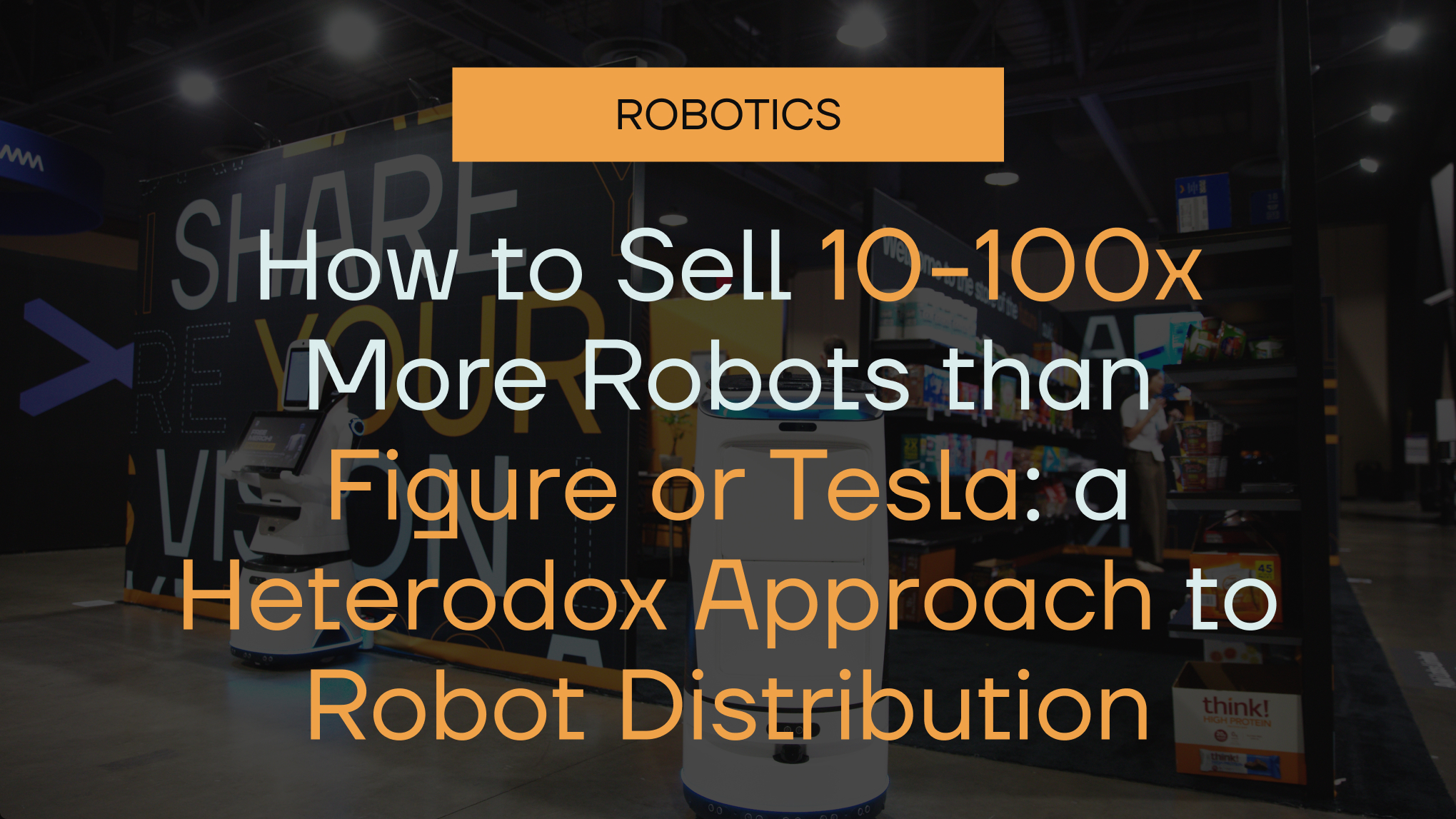
There are two types of robots today:
Both face critical distribution challenges: the former because they’re simply not useful enough for the mass market to begin with, and the latter because industrial clients tend to purchase in small quantities, often just dozens of units per site. Furthermore, they’re spread across wide geographies, making logistics, servicing, and scaling tremendously difficult. Aftermarket support becomes costly and slow, and fleet growth is limited by the complexity of each individual deployment.
At Auki, we’ve already been using retail to showcase the value of decentralized spatial computing, and we’ve realized that it can also be the ideal robot distribution network. Large retail chains already possess the operational infrastructure to support robotic fleets at scale and we’re going to use that our advantage.
Take one of our clients in the Nordics as an example: a chain with over 1,300 locations, serviced by just three regional warehouses. Each store receives daily deliveries from these hubs, and the trucks return on a predictable schedule.
This gives us a few unique advantages:
To further streamline support, we’re proposing containerized service bays at each warehouse: identical physical environments that simplify technician training and standardize repairs. With spare units stored at the warehouse, replacement robots can be dispatched and deployed within 24 hours, minimizing downtime.
This model will allow us to lease and support large scale fleets with:
In short, by aligning with the realities of retail logistics, we unlock a distribution and support model that scales, not to dozens of robots per customer, but to thousands. And unlike many industrial robots that are designed for highly specific environments, our retail robots will be well suited for all the retail stores in the world that have aisles with products on shelves.
The logistics-integrated nature of our solution means we have a realistic path to scaling into 100k locations in the next three years with our partners:
We’ve already integrated PadBots into Auki domains and shown them off in retail demos at AWE and SuperAI. Now that Alset Robot have moved in with us, we’re ready to put our heterodox robot distribution plan into action.
Auki is making the physical world accessible to AI by building the real world web: away for robots and digital devices like smart glasses and phones to browse, navigate, and search physical locations.
70% of the world economy is still tied to physical locations and labor, so making the physical world accessible to AI represents a 3X increase in the TAM of AI in general. Auki's goal is to become the decentralized nervous system of AI in the physical world, providing collaborative spatial reasoning for the next 100bn devices on Earth and beyond.
X | Discord | LinkedIn | YouTube | Whitepaper | aukilabs.com